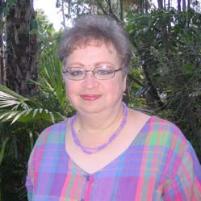Developing the courage to be incompetent
Published on 30 September, 2004
Senior lecturer with CQU Mackay, Carol Steiner, has delivered a presentation to the UniServe Symposium (in Sydney) on ‘Scholarly Inquiry in Science Teaching and Learning'.
“My presentation isn’t only relevant to science educators – there’s something here for anyone who indoctrinates students into professional paradigms,” said Dr Steiner.
 "The expectations of governments, science students and employers of science graduates seem to be reshaping science education and redefining science work to make them more relevant to the needs of industry.
"The expectations of governments, science students and employers of science graduates seem to be reshaping science education and redefining science work to make them more relevant to the needs of industry.
"But the skills, attitudes and values required for science work in industry (for example, a commercial orientation and creativity, and respect for non-scientists) have not been clearly articulated.
"As a result, the teaching of science may not be adequately addressing the challenges of preparing science graduates for a significant role in industry.".
Dr Steiner’s paper suggests that the desirable characteristics of ‘innovators’, for example, might be inconsistent with conventional notions of scientific competence. Furthermore, to play a socially significant role in industry, science graduates may need to develop what she calls ‘the courage to be incompetent'.
Dr Steiner’s paper goes on to suggest that critical engagement with science’s fundamental beliefs and values and with the world of innovation is called for late in graduates’ tertiary studies, and that this would be the best time to develop graduates’ ‘courage to be incompetent'.
Dr Steiner’s philosophical paper reports some qualitative research on the characteristics of innovators and then explores the nature of the problem facing science educators interested in nurturing those characteristics in their students.

